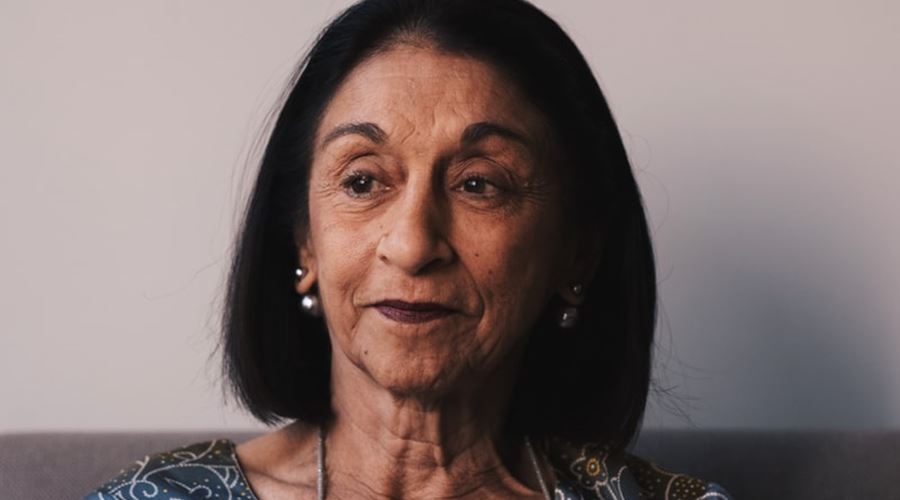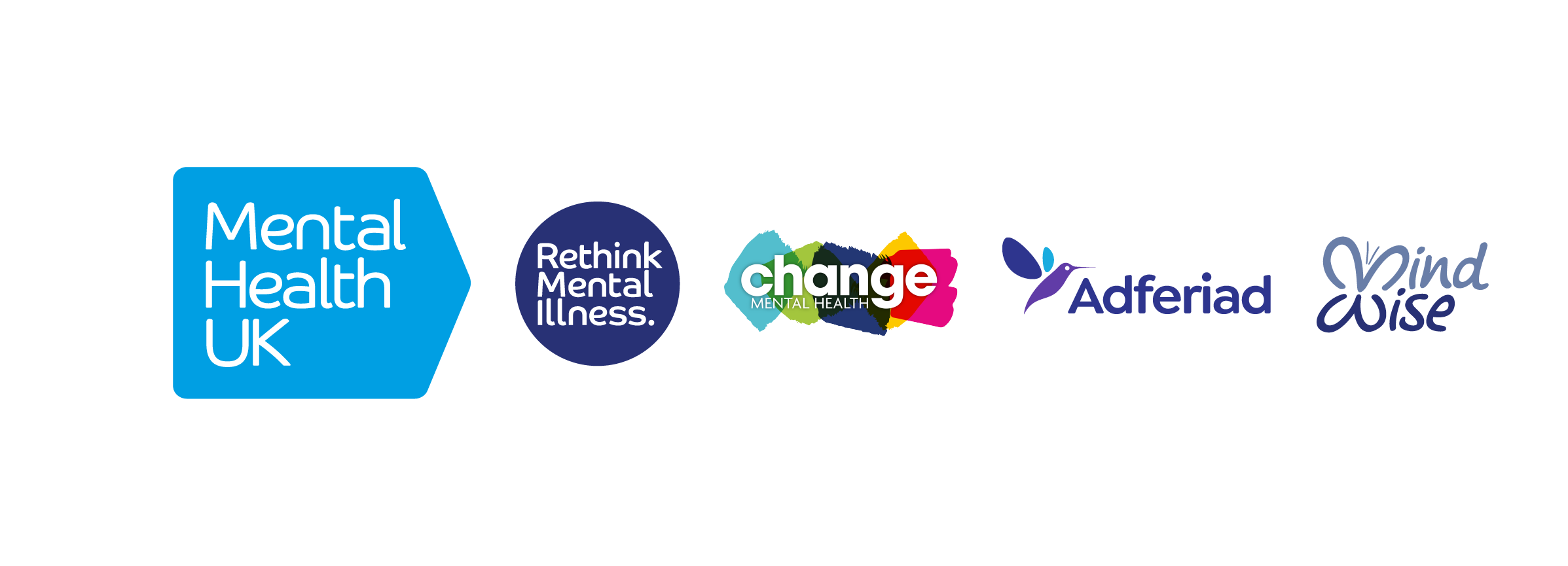- Home
- Info & Support
- Current: Coping with suicidal feelings
Do you need urgent help?
If you need to speak to someone right now, here are some confidential options which provide 24/7 support. If you're worried you might hurt yourself or someone else, please call 999, or go to your nearest A and E.
Childline
Helps anyone under 19 in the UK with any issue they’re going through. Childline is free, confidential and available any time, day or night.
0800 1111Samaritans
24 hours a day, 365 days a year. You don't have to be suicidal to call us
Coping with suicidal feelings
This page has ideas you can try to help you through a crisis. It explains how you can stay safe and where you can go for support if you're experiencing suicidal thoughts and feelings.
Quick Facts
- Just try to get through today rather than focusing on the future.
- Talk about how you are feeling with someone you trust or an emotional support helpline.
- Contact a health professional such as your GP or Community Mental Health Team (CMHT).
- Try to do activities you enjoy that take your mind off what you are thinking.
- If you are in real danger of taking your own life call emergency services on 999 or go to Accident and Emergency (A&E).
Helping myself
How can I help myself now?
Don’t make a decision today
You don’t need to act on your thoughts right now. Try to focus on just getting through today and not the rest of your life.
You may have had these thoughts before, but you feel less able to cope today. You might find that you are more able to cope in a few days.
Look at your crisis plan
Follow your crisis plan if you have one. You may have made a crisis plan with the help of a health professional or made your own.
If you don’t have a crisis plan you could make one. You can start to think of some things which you will find helpful. Keep this plan safe and change it as you need to. There is more information about how to make a crisis plan further down this page.
Look in your crisis box
A crisis box is personal to you and should be filled with items that make you feel happier about life.
If you don’t have a crisis box you can make one. There is more information about crisis boxes further down this page and how to make them.
Be aware of your triggers
Triggers are things which might make you feel worse. Triggers are different for different people. You may find that certain music, photos or films make you feel worse. Try to stay away from these.
You could create a Wellness Action Plan to help you to be more self aware. It can help you to identify triggers in your life which can make you unwell. It may help you to write down your triggers. If you can understand what your triggers are, it can help you to be more in control of your feelings or stress levels.
You can share your Wellness Action Plan with your family or friends if you want to. Sometimes it is helpful to share with your family and friends because it can help them to understand you more.
Click the below link to see an example of a Wellness Action Plan.
www.webstore.cwp.nhs.uk/publications/WRAP.pdf
Stay away from drugs and alcohol
Alcohol affects the parts of your brain that controls judgement, concentration, behaviour and emotions. Drinking alcohol might make you more likely to act on suicidal thoughts.
Drugs affect the way you think and feel. Different drugs have different effects. For example, cocaine can make you feel happy and more likely to take risks when you take it. But you may feel depressed after the effects stop. Other drugs can cause hallucinations, confusion and paranoia. You may be more likely to take your own life if you take illegal drugs.
Go to a safe place
Go to a place where you feel safe. Below is a list of places you could try.
- Your bedroom
- Mental health or spiritual centre
- Crisis centre
- Friend’s house
- Library
Stay away from things you could use to harm yourself, such as razor blades or pills. If you have a lot of medication you can ask someone to keep it for you until you are back in control of your feelings.
Talk to other people
It could be helpful for you to talk to someone about how you’re feeling. There are different people who can help. You could speak to friends, family or your GP.
Remember to be patient. Your friends and family may want to help but might not know how to straight away. If this happens, you should tell them what you want from them. You may want to talk about how you’re feeling, or you may want them to help you get professional help.
If you don’t want to talk to people you know, you could call an emotional support line, use an emotional support app or use an online support group.
You can find details or emotional support lines and apps in our, "Help in a Crisis" page.
Be around other people
You may find it too difficult to speak to anyone at the moment. That’s ok. But try not to spend too much time alone. You could go to a shopping centre, gym, coffee shop or park. Being around people can help to keep you safe, even if they don’t know how you’re feeling.
Distract yourself
You might feel it is impossible not to focus on your suicidal thoughts or why you feel that way. If you focus on your thoughts it might make them feel stronger and harder to cope with. Try doing things that distract you. Think about what you enjoy doing.
Below are some things you could do as a distraction.
- Read a book or magazine.
- Watch a film or TV.
- Go to a museum.
- Draw or paint.
- Listen to music.
- Play video games. Or other games or puzzles you enjoy.
- Singing
- Spend time with your pet.
- Set small goals to focus on. You could do the laundry, make a cake or tidy or organise something.
Make a list
Make a list of all the positive things about yourself and your life. It might be hard to think of these things right now, but try. Think about your strengths and positive things other people have said about you. At the end of every day write down one thing you felt good about, something you did, or something someone did for you.
Exercise
Exercise can have a good effect on your mood and thinking. Exercise is thought to release dopamine and serotonin. These are ‘feel good’ hormones.
Relax
There are different things you could do to relax such as:
- walk in a green space like a park,
- listen to nature,
- pay attention to nice smells such as coffee shops, your favourite food, a favourite perfume or soap,
- treat yourself to a food you like and pay close attention to how it tastes, how it feels in your mouth and what you like about it, having a bath or shower,
- looking at images that you like, such as photographs,
- meditation or mindfulness,
- breathing techniques or guided meditation. You can find these through a podcast or an online video website such as YouTube.
Mindfulness is a type of meditation. It is when you focus on your mind and body. It is a way of paying attention to the present moment. When you practice mindfulness, you learn to be more aware of your thoughts and feelings. Once you are more aware of your thoughts and feelings, you can learn to deal with them better.
But some people find that using mediation or mindfulness makes their suicidal thoughts worse. If this happens then stop.
You can try a breathing exercise to relax, like the one below.
Breathing exercise for you to try
Sit on a chair or on the floor. Keep your back straight and your shoulders back. Close your eyes and focus on your breathing. Think about how your breathing feels. Slow down your breathing as much as you can. You may find it useful to count as you inhale and exhale. If you start to have upsetting thoughts, bring your focus back to your breathing.
Think about the people you will be leaving behind
You may be thinking thoughts such as the following:
- ‘The world would be a better place without me.’
- ‘My family would be better without me.’
- ‘No one would care if I’m not here.’
These thoughts are common, but not correct. You matter.
Choosing to end your life is likely to have a negative effect on those around you. Even if you don’t think it will. This may be friends, family, neighbours or it may be a healthcare professional such as a doctor or support worker.
You can find more information about ‘Complementary and alternative treatments’ by clicking here.
Emotional support
How can I get emotional support?
Remember that however you feel there are people who will listen and who want to help.
Let family or friends know what you are going through. They may be able to offer support and help keep you safe. They may not be able to make you feel better straight away. But tell them how you feel. They may help you see your situation in a different way or think of other options.
If you can’t talk to family or friends, you may be able to get emotional support from other places. You could talk to:
- someone from an emotional support line,
- therapist or counsellor
- teacher, tutor or colleague
- religious or spiritual leader
There is a list of emotional support lines in the 'Contacts" section at the bottom of this page.
Professional support
How can I get professional support?
Emergency services and Accident and Emergency (A&E)
If you feel you will take your own life call the emergency services on 999. Ask for an ambulance. Or go to Accident and Emergency (A&E) at your local hospital.
Your GP
Your GP might be able to help you get support in a crisis. A GP should be available to speak to you 24 hours a day. If you call your surgery when it’s closed there will be a message to tell you who to call.
Your GP can discuss hospital treatment or refer you to the crisis team. They should do this if you suffer with depression and are a high risk of suicide, self-harm or neglect.
Crisis team or home treatment team
If you are supported by a crisis team, call them. The crisis team are sometimes called the home treatment team.
In some areas you can call the crisis team without a referral from a professional. You can search for your local crisis team online.
Community Mental Health Team (CMHT)
If you are under a Community Mental Health Team (CMHT) call your nurse (CPN) or care coordinator. If they are not there, talk to whoever is on duty that day.
In some areas you can call the CMHT without a referral from a professional. You can search for your local CMHT online.
Recovery or crisis house
A recovery house may be able to help if you are in crisis. A recovery house is a place you would stay whilst you are in crisis. Some recovery houses let you stay for a few days. Some let you stay for a few weeks. It is not a hospital but there will be healthcare professionals onsite.
Usually your GP or other healthcare professional will have to refer you.
There may not be a recovery house in your area. You can check with your crisis team, CMHT or search online to see what is available in your local area.
Charities
Some charities offer emotional support services or support groups. They help by listening to someone’s concerns and giving them space and time to talk through how they feel. Emotional support services are not the same as counselling services.
You can find details of emotional support services at the bottom of this page.
Crisis plan and crisis box
How do I make a crisis plan or crisis box?
Crisis plan
A crisis plan is sometimes called a safety plan. A plan should be made before you are in crisis, but it is never too late to start. You may need someone to help you to make a crisis plan such as a friend or support worker.
The aim of a crisis plan is to think about what support you need when you are in crisis. You could make a list of things that you could do to help yourself.
You can write down the names and numbers of people who would be able to help you. You may find it helpful to include the good things in your life or things that you are looking forward to as part of the plan.
There is no set way for how a crisis plan should look. You can access our crisis plan template by downloading this factsheet using the link at the top of the page.
Crisis box
A crisis box has lots of different names such as a ‘happy box’ or ‘hope box.’ You can call it whatever you like. The idea of a crisis box is that it is filled with items that make you feel better. You can use it when you feel anxious, stressed or suicidal.
The crisis box is personal to you. You can fill it with anything, such as:
- your favourite CD,
- something to distract you, like a puzzle or colouring book,
- reminders of positive things you have learnt in therapy sessions,
- a copy of your crisis plan,
- photographs of people you love and who make you happy, or
- your favourite sweets.
If you don’t know what to put in your box you can look online for ideas.
Contacts
It’s important to be aware of your own mental health and get your own support if are struggling to cope.
Read our guide on supporting someone else for some practical tips.
- Contact Samaritans 24 hours a day, 365 days a year. You can call 116 123 (free from any phone), email jo@samaritans.org or visit some branches in person.
- Lifeline are there for anyone in distress or despair. Call them free on 0808 808 800. If you are deaf or hard of hearing, their textphone number is 18001 0808 808 8000.
- If you're a new or expectant parent, PANDAS helpline is open from 11am-10pm every day. Call free on 0808 1961 776
- If you're experiencing a mental health problem or supporting someone else, you can call SANEline on 0300 304 7000 (4.30pm–10.30pm every day).
- If you're in a crisis and don't want to speak on the phone, you can use the Shout textline, 24/7. Text Shout to 85258
- If you're under 25, you can call The Mix on 0808 808 4994 (Sunday-Friday 2pm–11pm), request support by email using this form on The Mix website or use their crisis text messenger service.
- If you're under 35 and experiencing suicidal feelings, or concerned about a young person who might be struggling, you can call Papyrus HOPELINEUK on 0800 068 4141 (weekdays 10am-10pm, weekends 2pm-10pm and bank holidays 2pm–10pm), email pat@papyrus-uk.org or text 07786 209 697.





